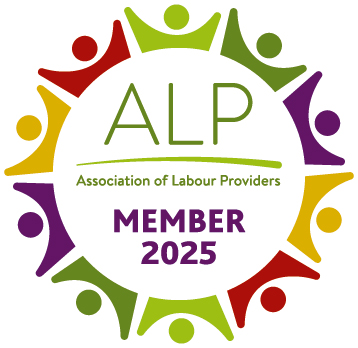Are you looking for a new job opportunity but don’t think your CV is up to scratch to get the roles you want? Knowing what to write, how to write it, and what to include in your CV can be a hard thing to decipher. Did you know? Having a CV that isn’t well structured can actually hinder your efforts when job hunting. Don’t fret! With the right advice, we’ll get you standing out from the crowd and boosting your chances at getting to that all-important interview stage. We have some top tips to help improve your CV below.
Think of your CV as a shop window to who you are. It markets your skills and experience to potential employers and hiring managers. It’s a professional timeline of your working life, from job roles and education to achievements and skills that will help sell yourself as the perfect candidate for the job. So let’s go through what you need to include.
Improve your CV with structure
Personal Details
One of the most common things to first include in your CV is your personal information. Your name, location, contact number, and email address. You can also include a link to your LinkedIn if relevant.
Personal Statement
Your personal statement only needs to be a few sentences that give recruiters and hiring managers a brief insight into who you are, what you do, what you can offer, and what direction you see your career journey heading.
Employment History
The majority of your CV will focus on your employment history, focusing on your past roles, job titles, how long you have been in those positions, experience gained, and skills you have developed during those positions.
If you’re unsure of where to start, try starting from your most recent job role and work your way back. Include your employer’s company name, your job title, and the timeframe as to when you started and finished that particular employment, and underneath in bullet points, list your responsibilities, achievements, and skills used.
If applicable, you can also list any software, tools, or machinery you have used in the roles, to further help you stand out from the crowd.
Education & Qualifications
Once you’ve gone through your employment history, the next section will be your education and qualifications. Usually being a shorter section, the education and qualification section should include the name of the institution, the date range in which you studied there, what you studied, and what qualifications you received.
If you’ve got gaps in your CV, you will be asked why. However, employers understand that candidates have lives and responsibilities outside of work and won’t hold that against you, so don’t assume a gap in employment or education will take you out of the running for the job. Whether your gap in employment or education was a gap year, illness, pregnancy, or redundancy, rather than going into too much detail, briefly mention the reason for the gap and use the opportunity to list transferrable skills or qualifications you gained, if any, during that time.
Things you need to look out for on your CV
- Spelling and Grammar Mistakes – There are many programs that automatically run spell checkers and pick up on grammatical mistakes. Take the time to read through your CV and make sure it’s in top form.
- Never lie or exaggerate – Not only will this show you as a dishonest person to your recruiter or potential employer but if the thing you’re lying or exaggerating about is a skill or piece of software you claim to know to get the job, you’re likely to get found out further down the line.
- Generic and overused phrases – Words like ‘multi-tasker’, ‘team player’, and ‘hardworking’, are all good and well, but to set yourself apart, use real-life examples that demonstrate these skills either in your CV or cover letter or prepare them as little notes for when you get through to interview.
By structuring and adding relevant information, it can improve your CV and your chances at getting through to interview stage of your job application. Once you’re CV is ready to go, why not take a look at our vacancies or get in touch with us and see how we can assist you in finding your perfect job.



